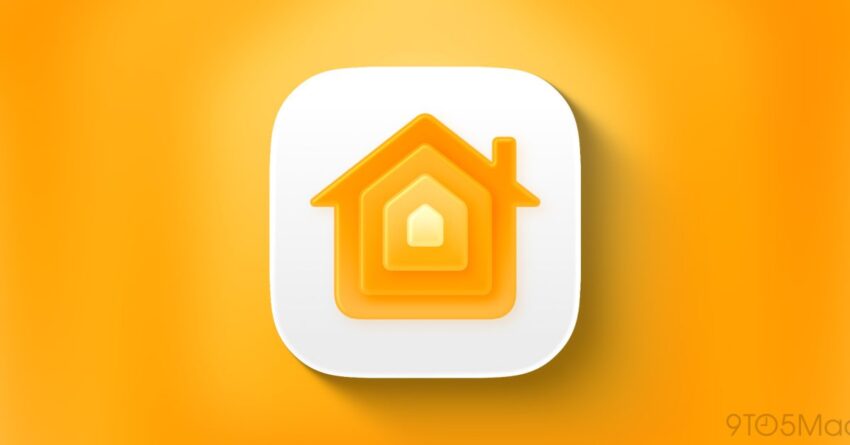
apple s new home products just got Apple is set to make a significant entry into the smart home market, with two product launches on the horizon and a more extensive rollout planned for 2026, a move that has been bolstered by recent developments from competitor Samsung.
apple s new home products just got
Apple’s Strategic Move into Smart Home Products
Apple has long been a dominant player in the consumer electronics space, but its foray into smart home products has been somewhat cautious. However, recent announcements indicate a shift in strategy, with Apple gearing up for a more aggressive push. The company is expected to unveil two new smart home devices soon, which are anticipated to lay the groundwork for a broader range of products slated for release in 2026.
Upcoming Product Launches
While specific details about the upcoming products remain under wraps, industry insiders suggest that Apple is focusing on enhancing its HomeKit ecosystem. This could involve new devices that integrate seamlessly with existing Apple products, such as the iPhone, iPad, and Apple Watch. The aim is to create a cohesive smart home experience that leverages Apple’s robust ecosystem.
Apple’s emphasis on privacy and security is likely to be a cornerstone of these new offerings. The company has built a reputation for prioritizing user data protection, which could be a significant selling point in the smart home market, where concerns about data breaches are prevalent.
Long-Term Vision for 2026
Looking ahead to 2026, Apple appears to be positioning itself as a key player in the smart home industry. Analysts predict that the company will expand its product line to include a variety of smart devices, potentially ranging from smart speakers to advanced home automation systems. This long-term vision aligns with the growing trend of interconnected devices that enhance convenience and efficiency in everyday life.
The Competitive Landscape
Apple’s entry into the smart home market comes at a time when competition is intensifying. Major players like Google and Amazon have already established a strong foothold, offering a wide array of smart home products. However, Samsung’s recent developments may provide Apple with an unexpected advantage.
Samsung’s Influence on the Market
Samsung has been a significant player in the smart home sector, with its SmartThings platform enabling users to control a variety of devices from different manufacturers. Recently, Samsung announced enhancements to its SmartThings ecosystem, which could potentially create a more fragmented market for smart home products. This fragmentation may lead consumers to seek out more unified solutions, such as those Apple is poised to offer.
Samsung’s updates include improved compatibility with third-party devices and enhanced user interface features, making it easier for consumers to manage their smart home environments. However, these advancements also highlight the challenges of interoperability in the smart home space, an area where Apple has the potential to excel.
Interoperability and User Experience
One of the key challenges in the smart home market is ensuring that devices from different manufacturers can work together seamlessly. Apple’s HomeKit framework has been designed to address this issue by providing a standardized platform for developers. As Apple introduces new products, the emphasis on interoperability could attract consumers who are frustrated with the complexities of managing multiple ecosystems.
Moreover, Apple’s focus on user experience is likely to set its products apart. The company has a history of creating intuitive interfaces that enhance usability, which could be particularly appealing in the smart home sector. By prioritizing ease of use, Apple may be able to capture a segment of the market that values simplicity and efficiency.
Consumer Reactions and Market Implications
The anticipation surrounding Apple’s upcoming smart home products has generated considerable excitement among consumers. Many Apple enthusiasts are eager to see how the company will leverage its existing ecosystem to create innovative solutions for smart home management. The prospect of new devices that integrate seamlessly with iOS and macOS is particularly appealing, as it promises a more cohesive user experience.
Stakeholder Perspectives
Industry analysts have weighed in on Apple’s strategic move, noting that the company’s entry into the smart home market could reshape the competitive landscape. Some experts believe that Apple’s emphasis on privacy and security will resonate with consumers, particularly in an era where data breaches are increasingly common.
Additionally, stakeholders within the tech industry are closely monitoring Samsung’s recent developments. While Samsung’s enhancements to its SmartThings platform may pose a challenge, they also present an opportunity for Apple to differentiate itself. By focusing on interoperability and user experience, Apple could carve out a niche that appeals to consumers seeking a more integrated smart home solution.
Potential Challenges Ahead
Despite the optimism surrounding Apple’s entry into the smart home market, challenges remain. The competitive landscape is crowded, with established players like Google and Amazon continuing to innovate and expand their offerings. Apple’s ability to capture market share will depend on its capacity to deliver products that not only meet consumer expectations but also stand out in a saturated market.
Moreover, the success of Apple’s smart home products will hinge on effective marketing and consumer education. As the company introduces new devices, it will need to communicate the benefits of its ecosystem clearly and demonstrate how its products can enhance the smart home experience.
Conclusion
Apple’s impending launch of smart home products marks a pivotal moment in the company’s history, as it seeks to establish a foothold in a rapidly evolving market. With two product launches on the horizon and a broader vision for 2026, Apple is poised to compete with established players while addressing consumer concerns about privacy and interoperability.
As Samsung’s recent developments create a more fragmented market, Apple has the opportunity to position itself as a leader in providing cohesive and user-friendly smart home solutions. The coming months will be critical as Apple unveils its new products and seeks to capture the attention of consumers eager for innovative technology that enhances their everyday lives.
Source: Original report
Was this helpful?
Last Modified: September 19, 2025 at 10:47 pm
0 views















